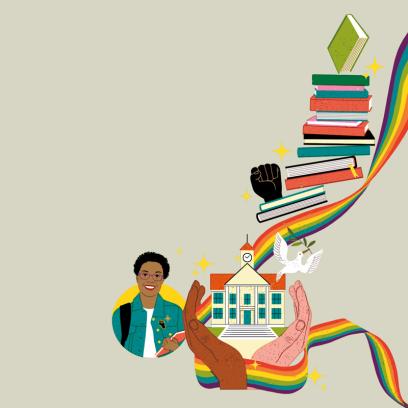Last summer, the AFT and the American Association of University Professors (AAUP) joined forces through a historic affiliation. Along with committing to making colleges and universities excellent places to teach and learn, the partnership is dedicated to securing academic freedom and bolstering our democracy.
Given conservative extremists’ efforts in recent years to dampen educators’ professional autonomy in K–12 and higher education, we encourage all of the AFT’s education members to explore the AAUP’s resources: aaup.org/programs/aft-higher-ed-members. To that end, we offer a two-part excerpt from the AAUP’s Journal of Academic Freedom. This annual journal explores academic freedom and related issues, including shared governance and collective bargaining. The current volume responds to recent attacks on teaching honest history and calls for creating classrooms that are safe and welcoming for all students. Many of the articles take on the myth that K–12 schools are teaching critical race theory (CRT, which is a subject taught primarily in law schools), and they expose the reality that previously uncontroversial lessons on historical facts like enslavement, Jim Crow, and segregation are being censored in far too many communities across America.
In the first part of this excerpt, we share edited portions of the editors’ introduction, in which they show the dangers of censored history lessons and discuss the importance of academic freedom. Their explanation of the difference between free speech and academic freedom is particularly important for all educators. In the second part of this excerpt, we shift to another crucial form of censorship, sharing selections from an article on attempts to ban books and curricula that support LGBTQIA+ people. While the complete article explores the history of instructional policy on LGBTQIA+ issues and offers more details on today’s political context, our edited selections focus on how to support teachers in creating inclusive classrooms.
We hope these excerpts spark your curiosity. Like American Educator, the Journal of Academic Freedom is available for free online. To keep reading, visit aaup.org/reportspubs/journal-academic-freedom/volume-13.
–EDITORS
[Illustrations by Sonia Pulido]

